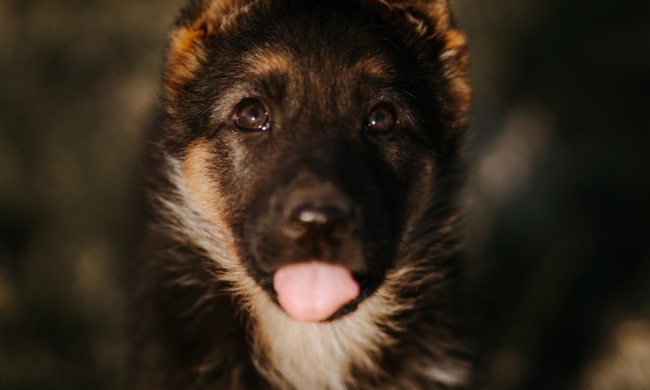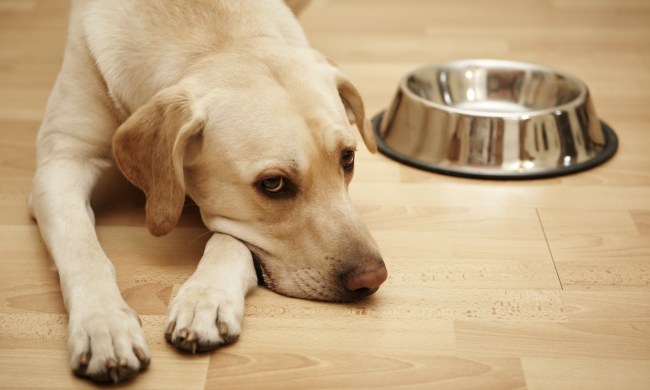Hearing your dog cough can be startling and concerning, especially for first-time pet parents. Plenty of dog owners rush their furry friend to the vet when they hear the horrible hacking sound, but they’re relieved to find out that occasional coughing in dogs is usually harmless. Still, it can rarely be a sign of a bigger problem, like a virus or kennel cough.
But how can you know why your dog is coughing? There’s a difference between kennel cough and a similar honking sound called reverse sneezing, but it takes a little training to recognize which is which. Luckily, we’re here to review the differences between them and how to tell when your dog needs veterinary assistance.
Here’s what you need to know about kennel cough vs. reverse sneezing to keep your four-legged friend healthy.
What is kennel cough?

Control Point Diagnostics records over 5 million cases of kennel cough, or Canine Infectious Respiratory Disease Complex, in the U.S. every year. As you may have guessed, this is one of the most common infections in dogs, especially in shared spaces like boarding facilities and shelters. In fact, the prevalence of this cough in kennels and rescues is why it’s known as “kennel cough.” This usually presents as a dry hacking or honking cough and can be followed by swallowing, gagging, or licking the lips. Coughing may get worse with activity.
It’s important to note that not all canine coughs are kennel coughs. Dogs can cough, hack, or make throat-clearing noises for a variety of reasons, including allergies, irritants, or even pulling on the leash and putting pressure on their neck. On the other hand, kennel cough is caused by one or more kinds of bacteria and viruses, usually simultaneously. These pathogens are highly contagious and spread easily from dog to dog, which is why they’re so prevalent in shared spaces.
Viruses that can cause kennel cough
- Canine parainfluenza virus*
- Canine adenovirus type 2*
- Canine influenza virus (subtypes H3N2 and H3N8)*
- Canine respiratory coronavirus
- Canine herpesvirus-1
- Canine distemper virus*
Bacteria that can cause kennel cough
- Bordetella bronchiseptica*
- Mycoplasma species
- Streptococcus equis subspecies zooepidemicus
*= vaccine available
What is reverse sneezing?

Reverse sneezing is another common respiratory issue in dogs that tends to occur suddenly and in spasm-like episodes. It can be alarming to witness, but you’ll be relieved to know that it’s harmless to healthy dogs without underlying conditions. But what does reverse sneezing look like?
Dr. Jerry Klein, CVO, describes reverse sneezing as “sudden, rapid, and repeated inhalations through the nose, followed by snorting or gagging sounds.” That is to say, your dog will be making these sounds back-to-back-to-back. Reverse sneezing episodes tend to last for about one minute or less, but it’s not unheard of for dogs to have multiple episodes in a short amount of time.
When reverse sneezing, a dog will likely stand still and extend their head and neck. This posture can also scare some pet owners, but they should relax as soon as the episode subsides. One or two sporadic episodes can be a sign of throat irritation, fragrance in the room, or a tickle in the nose, but a more chronic issue can be a sign of allergies or a virus. Dogs are usually attempting to clear their throat and nasal passages when reverse sneezing, just as a person would when clearing their throat. Some breeds, like toy dogs and brachycephalic breeds, may reverse sneeze more frequently due to shortened nasal passages.
How to tell the difference: Kennel cough vs. reverse sneezing

Although kennel cough and reverse sneezing can sound similar, there are a few key differences that dog owners can look out for. The first is that reverse sneezing will happen in short episodes, whereas kennel cough may be more sporadic, with just a few coughs here and there. They’ll rapidly inhale and snort multiple times within a minute when reverse sneezing.
The other key difference is the sound your dog makes. Kennel cough results in a honking or hacking sound or even just a dry cough. Reverse sneezing, on the other hand, causes snorting and forceful inhaling. Gagging sounds could accompany either issue, though your dog could be hacking something up if the gagging continues. If anything seems to disrupt their ability to breathe, check to make sure they aren’t choking.
Another easy way to determine the issue is to double-check whether your dog shows any other signs of illness, such as lethargy, eye discharge, or frequent sneezing. If so, they’re more likely dealing with kennel cough as a result of a viral or bacterial infection.
Overall, neither kennel cough nor reverse sneezing is worth worrying about. It’s always a great idea to be informed about these important topics, but they are rarely harmful to infected dogs. These issues cannot be passed along to humans, though it’s only normal to feel down in the dumps when your pup is unwell, too. You can always consult your dog’s veterinarian if symptoms don’t seem to improve, but you’ll be glad to know that these are almost always short-lived problems!




